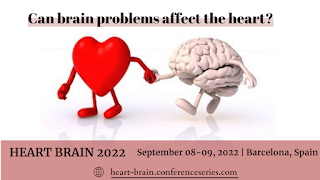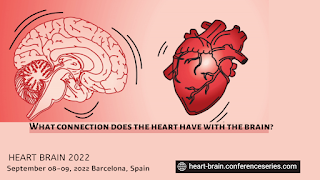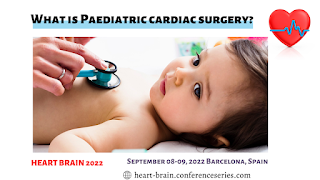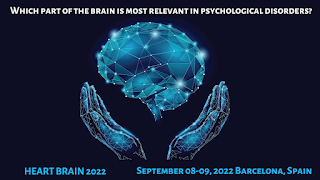Can brain problems affect the heart?
A multitude of brain injuries like stroke
(ischemic stroke, brain hemorrhage, or SAH), traumatic brain injury (TBI),
tumor, and numerous causes of intracranial cardiovascular disease will result
in internal organ pathology, arrhythmias, and heart disease. Abstract. There are
a unit variety of hereditary and non-hereditary central system (CNS) disorders
that directly or indirectly have an effect on the guts (brain-heart disorders).
The foremost well-known of those CNS-disorders area unit brain disease, stroke,
subarachanoid injury, microorganism infectious disease, and head injuryOne a
part of the involuntary system may be a combine of nerves known as the
wandering nerve nerves, that run up either facet of the neck. These nerves
connect the brain with a number of our internal organs, as well as the guts.
There are a unit variety of hereditary and non-hereditary
central system (CNS) disorders that directly or indirectly have an effect on
the guts (brain–heart disorders). The foremost well-known of those CNS-disorders
area unit brain disease, stroke, subarachanoid injury, microorganism infectious
disease, and head injury. Additionally, variety of hereditary and
non-hereditary neurodegenerative disorders could impair internal organ
functions. Heart of the guts could manifest as arrhythmias, myocardiopathy, or
involuntary pathology. Rarer internal organ complications of system disorders
embrace heart disease, heartbeat or pulsation
pathology, infarction, blood vessel cardiovascular disease, or respiratory
organ cardiovascular disease. Heart {disease|heart condition|cardiopathy}
evoked by hereditary system disease chiefly includes stress-induced cardiac
muscle pathology, referred to as Takotsubo syndrome (TTS). System illness
triggering TTS includes brain disease, ischaemia, subarachnoid injury, or PRES
syndrome. Arrhythmias evoked by hereditary system illness embrace
supraventricular or chamber arrhythmias resulting in palpitations, dizziness,
vertigo, fainting, syncope, (near) fulminant internal organ death, or fulminant
unexplained death in brain disease (SUDEP). Applicable management of internal
organ involvement in CNS-disorders is crucial to boost outcome of affected
patients.
Heart failure (HF) may be a complicated illness with a
growing incidence worldwide. HF is in the middle of a good vary of conditions
that have an effect on illness progression, practical performance and
contribute to growing tending prices. The interactions between a failing heart
muscle and altered cerebral functions contribute to the symptoms skilled by
patients with HF, moving a lot of comorbidity and inflicting a poor prognosis. Heart
and brain disorders additional ofttimes co-exist than by accident alone, thanks
to having common risk factors and a degree of interaction. Within the setting
of heart disease (HF) within the aged strokes, dementia, and depression
area unit all common and may turn out a very tough series of clinical issues to
manage. Loss of ability to self-care will result in terribly poor quality of
life and a dramatic increase in health care expenditure. The guts Failure
Association of the ESC as a part of its workshop on physiological observance of
the complicated multi-morbid HF patient reviewed screening, monitoring,
prevention, and management of psychological feature decline inside the setting
of HF.




Comments
Post a Comment